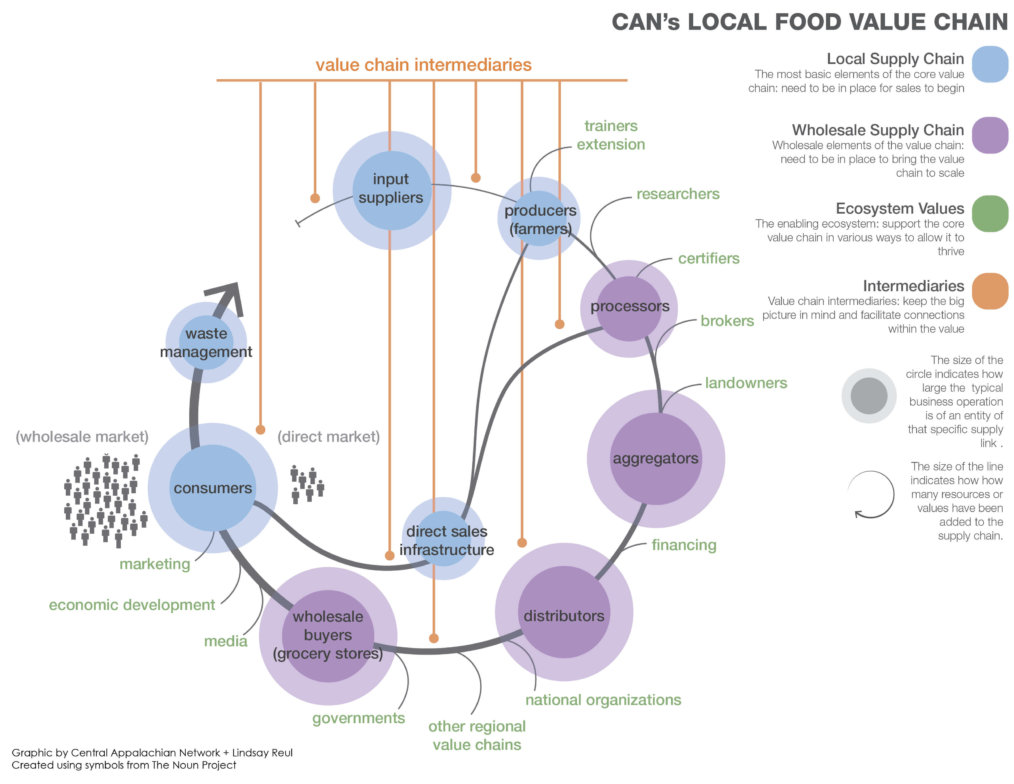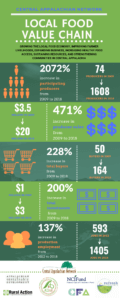
2018 Local Food System Impacts – $20 Million in Producer Sales!
For almost a decade, the Central Appalachian Network and its partners have been tracking local food value chain data using the Wealth Works framework across the Central Appalachian region. The value chain approach helps to grow the local food economy, improve farmer livelihoods, expand businesses, increase healthy food access, sustain resources, and strengthen communities in Central Appalachia.
We have just finished compiling the data for 2018, and are excited to share the results from another successful year! CAN tracks several metrics including: number of participating producers, amount of producer sales, number of total buyers, amount of total investments, and amount of production employment. All of the data below is compared to the baseline data from 2009.
_______________________________________________________________________________________________
In 2018, at least 1608 producers participated in CAN-supported value chains by selling through farmers markets, food hubs, or other intermediated markets. Total gross revenue to these producers from value chain sales was $20,115,625.02 This represents an increase of 464% over 2009 revenue.
In 2018, CAN worked with 164 buyers – including grocery store chains, produce brokers, school systems, institutions, and restaurants – who purchased a total of $16,175,277.00 in local food value chain products. This represents an increase of 221% in the number of buyers engaged in the value chains over nine years, and an increase of close to 801% in the value of their annual purchases.
In 2018, 114 organizations, agencies, philanthropies, businesses, and individuals invested in the development of CAN-supported local food value chains. The approximate value of these investments totaled $3,020,701.00, an increase of 105% over 2009 totals. Impressively, $2,124,201 of investment came from internal sources, including value chain buyers, producers, businesses, intermediaries, lenders, and community groups. This investment represents over 70% of the total investment in the value chains this year, ten times more than in 2009.
In 2018, value chain producers provided 1,195.5 year round jobs, 243 seasonal jobs, and 26 volunteer/intern positions, and 14 self-employment or supplemental jobs for a total of 1,478.5 FTE jobs in value chain production across the region. This represents a 149% increase from 2012.

________________________________________________________________________________________________
We are excited to support the continued growth of our region’s local food economy, a critical sector for Appalachian farmers and communities, in 2019 and beyond.
